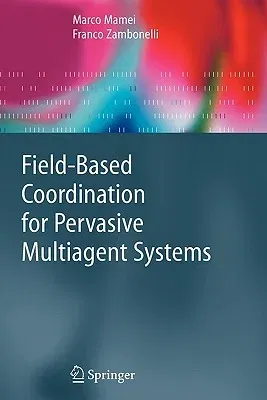Marco Mamei
(Author)Field-Based Coordination for Pervasive Multiagent SystemsPaperback, 22 October 2010

Qty
1
Turbo
Ships in 2 - 3 days
In Stock
Free Delivery
Cash on Delivery
15 Days
Free Returns
Secure Checkout
Part of Series
Springer Agent Technology
Part of Series
Springer Series on Agent Technology
Print Length
242 pages
Language
English
Publisher
Springer
Date Published
22 Oct 2010
ISBN-10
3642066232
ISBN-13
9783642066238
Description
Product Details
Authors:
Book Format:
Paperback
Country of Origin:
NL
Date Published:
22 October 2010
Dimensions:
23.39 x
15.6 x
1.37 cm
ISBN-10:
3642066232
ISBN-13:
9783642066238
Language:
English
Location:
Berlin, Heidelberg
Pages:
242
Publisher:
Weight:
362.87 gm

